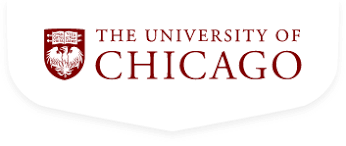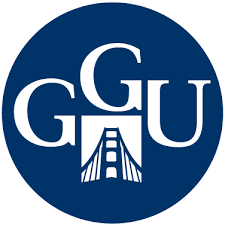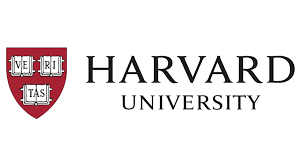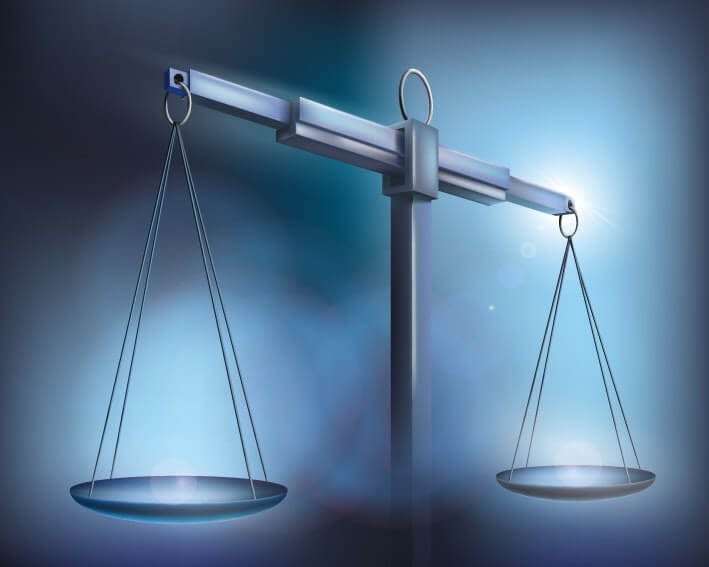Because different countries and territories have legal systems of their own, an understanding of international laws helps individuals and businesses navigate issues concerning legalities. Knowledge of foreign laws regarding taxation or trade help determine the international border transport rules and limitations to observe.
This is where Comparative Law as an academic discipline comes in.
A Doctor of Comparative Law (D.C.L.) degree is obtainable online. Unfortunately, online doctorate programs are not accredited by the American Bar Association. The current academic format, both online and on-campus, facilitates quality training and the demanding task of finishing a law dissertation.
______________________________
Best Doctor of Comparative Law Degree Programs
FORDHAM UNIVERSITY

JURIS DOCTOR – INTERNATIONAL, COMPARATIVE, AND FOREIGN LAW CONCENTRATION
School Highlights: At Fordham University, students earn a degree in International, Comparative, and Foreign Law through the Juris Doctorate. The concentration curriculum is divided into three subsections—international, comparative, and foreign law.
Students can easily personalize their degree to focus more strongly on comparative course topics, of which there is a vast array. The electives include other fascinating classes as well, such as Understanding War, Crime, and Justice After 9/11: Today’s National Security Law in Context.
As a JD program, the core coursework is a combination of traditional and cutting-edge fields emphasizing skill-based experiential learning. Students can gain further experience through the Fordham Externship Program in federal and local courthouses under the supervision of a mentor-attorney.
Coursework Sample:
- Comparative Antitrust Law and Enforcement
- Comparative Constitutional Law and Rights
- Constitutional Rights and Human Rights in Comparative Perspective
Campus Location: Bronx, NY
Accreditation:
- Middle States Commission on Higher Education
- American Bar Association
Acceptance Rate: 58% Retention Rate: 89% Graduation Rate: 83%
LEARN MORE ABOUT FORDHAM UNIVERSITY’S JD IN INTERNATIONAL, COMPARATIVE, AND FOREIGN LAW
UNIVERSITY OF CHICAGO

DOCTOR OF COMPARATIVE LAW (D.COMP.L.)
School Highlights: The University of Chicago is an incredibly popular school where students are immensely satisfied with their education. Its retention rate is one of the highest of any college or university in the country, which is an accurate indication of excellence and quality.
The Law School provides an esteemed Doctor of Comparative Law, which can also be taken as a Doctor of Jurisprudence. It is a two-year, on-campus degree that requires students to attend research colloquiums and workshops alongside the doctoral coursework.
However, there are “not in residence” options available for students living outside of Chicago. The curriculum emphasizes the enhancement of analytic abilities, basic and broad legal knowledge, and a highly extensive understanding of the legal system.
Coursework Sample:
- Comparative Legal Institutions
- Constitutional Law VI: U.S. Constitutional Rights in Comparative Perspective
- Islamic Law: Foundations and Contemporary Issues
Campus Location: Chicago, IL
Accreditation:
- Higher Learning Commission
- American Bar Association
Acceptance Rate: 5% Retention Rate: 99% Graduation Rate: 95%
LEARN MORE ABOUT THE UNIVERSITY OF CHICAGO’S DOCTOR OF COMPARATIVE LAW DEGREE
LOUISIANA STATE UNIVERSITY

JURIS DOCTOR WITH A GRADUATE DIPLOMA IN COMPARATIVE LAW
School Highlights: Louisiana State University offers a unique opportunity for law students to earn a Juris Doctorate alongside a Graduate Diploma in Comparative Law. It is a 94-credit doctoral program that includes 15 credits for the DCL. The LSU Law Center is a globalized leader in the curation of civil law, and the additional coursework strengthens students’ skills in the said area specifically.
All students participate in experiential learning programs through the JD and DCL, such as clinics, field placements, and stimulation courses. These academic experiences align students with outstanding opportunities upon graduation and challenge their understanding of law. Graduates have drastically enhanced careers and positions of employment upon exiting the Louisiana State University Law School.
Coursework Sample:
- Comparative Health Law Seminar
- Comparative Labor Law
- Comparative Media Law
Campus Location: Baton Rouge, LA
Accreditation:
- Higher Learning Commission
- American Bar Association
Acceptance Rate: 71% Retention Rate: 84% Graduation Rate: 68%
LEARN MORE ABOUT LOUISIANA STATE UNIVERSITY’S JURIS DOCTOR WITH A GRADUATE DIPLOMA IN COMPARATIVE LAW
GOLDEN GATE UNIVERSITY

SJD DEGREE (DOCTORATE) IN INTERNATIONAL LEGAL STUDIES
School Highlights: Golden Gate University does not supply a Comparative Law degree, specifically. However, it does offer a Doctor of Juridical Sciences with a concentration in International Legal Studies that provides an education very similar to a DCL curriculum.
This program includes a fascinating emphasis on the cultural, sociological, legal, and business activities of countries in Europe, the Pacific Rim, and other regions across the globe.
Golden Gate University provides a highly enriching study abroad program that takes students to their desired location of study where they are guaranteed to excel in their knowledge of comparative law.
Students are encouraged to take advantage of the GGU Sompong Sucharitkul Center for Advanced International Legal Studies, which supplies outstanding academic and professional opportunities, both domestically and abroad.
Coursework Sample:
- SJD Residency
- SJD Candidacy
- Curricular Practical Training
Campus Location: San Francisco, CA
Accreditation:
- Western Association of Schools and Colleges
- American Bar Association
Acceptance Rate: 83% Retention Rate: –% Graduation Rate: 71%
LEARN MORE ABOUT GOLDEN GATE UNIVERSITY’S JURIS DOCTORATE IN INTERNATIONAL LEGAL STUDIES
HARVARD UNIVERSITY

JD IN INTERNATIONAL AND COMPARATIVE LAW
School Highlights: Harvard University is one of the most celebrated and prestigious institutions of higher education across the entire globe. Harvard Law is a competitive school that is highly sought after by the most brilliant legal minds in the world.
The Juris Doctorate provides numerous concentration options, including an emphasis in International and Comparative Law. These two areas are crucially important to the structure of all Harvard Law degrees. During their academic experience, students can look forward to in-depth coursework and fabulous resources.
Students work closely with individual faculty mentors and will often publish their own findings in clinical programs and legal journals. Harvard also has numerous extracurricular opportunities such as fellowships, research projects outside the classroom, and student organizations.
Coursework Sample:
- Contemporary Developing Countries: Entrepreneurial Solutions to Intractable Social and Economic Problems
- Human Rights and International Law
- Corporations from a Comparative
Campus Location: Cambridge, MA
Accreditation:
- New England Association of Schools and Colleges
- American Bar Association
Acceptance Rate: 3% Retention Rate: 96% Graduation Rate: 97%
LEARN MORE ABOUT HARVARD UNIVERSITY’S JD IN INTERNATIONAL AND COMPARATIVE LAW
Frequently Asked Questions
What is Comparative Law?
Comparative Law is a foundational course in law school that studies the similarities and differences of legal systems in countries, states, and political entities of the contemporary world. Through the application of methodologies, Comparative Law teaches, compares, and contrasts existing laws worldwide, leading to an in-depth understanding of the global community.
Key topics in Comparative Law concern politics, religion, international criminal law, and finance. For instance, transnational faith-based legislations are an essential part of comparative law. Knowledge of the Sharia law is crucial in the drafting of regulations for Muslim countries. In the same way, familiarity with the Canon laws augments the crafting of policies in Catholic communities.
What sort of accreditation should I look for in a school?
Every law school in the US is accredited by the American Bar Association (ABA). Without accreditation from ABA, graduates from teaching institutions are not allowed to take the US bar examination. Unless recognized by the ABA, a doctorate law program, such as a Doctor of Comparative Law degree, is invalid.
In California, however, you don’t need to attend an ABA-accredited school to become a lawyer. That said, your school needs to be accredited by the California Bar Association (CBA), a regional accrediting body. Law schools without accreditation from ABA in California only offer up to Juris Doctor (J.D.) and Masters of Laws (LLM) degrees. To date, the CBA does not accredit doctorate-level programs.
How do I earn my D.C.L. degree?
In the United States, you need to hold a Master’s Level in Law (LL.M.), Master of Studies in Law (M.S.L.), or Master of Jurisprudence (M.S.J). In exceptional cases, like in the Louisiana State University, you can pursue the D.C.L. as an extended option for your Juris Doctor degree. You will need to spend 15 more credit hours focusing on Comparative Law.
Typically, a Master’s in Law degree holder spends at least two years in school. The curriculum requires regular attendance at faculty meetups and active participation in research activities organized by the school. The student needs to enroll in at least two courses related to their dissertation.
The dissertation is the most mentally-tasking challenge for a D.C.L. student. At the start of the D.C.L. program, students should work closely with a supervisor. Students periodically submit a progress report to their mentor to keep track of timelines and ensure work completion. Once the Dean of Studies approves the dissertation, the candidate is eligible to obtain the D.C.L degree.
Again, law schools offer hybrid and online programs for Juris Doctor (J.D.) and Masters of Laws (LLM) degrees only. While there are distance learning programs, they are not accredited by the ABA. To be sure, check all your options and consider the disadvantages of earning a degree from non-accredited online schools.
What type of degree do I need to pursue research or educate others in Comparative Law?
A lawyer with a D.C.L. or Doctor of Jurisprudence (J.S.D.) degree that specializes in Comparative Law or International Law can teach in D.C.L. law schools. Dissertations in this doctoral program are expected to contribute to the enrichment of the field.
What kind of career and salary can I expect with my D.C.L. degree?
D.C.L. is a professional doctorate in law with some leanings towards the academic realm (compared to more practical law areas like criminology and civil law). There is no surprise that a lot of D.C.L. degree holders end up in academia or research firms. Some even work for the government and represent their state or country to foreign dignitaries.
The Bureau of Labor Statistics reveals that law professors earn in the range of $133,950 and $176,900 per year. Lawyers, on the other hand, make roughly $135,740 annually. Expect a higher figure than that with a Doctor of Comparative Law degree that opens doors of opportunities for you to take on senior positions in law firms.
Do I need a license to be a lawyer specializing in Comparative Law?
You need to pass the bar exam to become a lawyer after earning a Juris Doctor degree, but no regulation requires a Doctor of Comparative Law to take another licensure exam to prove that you do indeed have a doctorate. Your D.C.L. diploma is proof enough of your hard work and contribution to the field.
What schools offer Doctor of Comparative Law degrees?
The following ABA-accredited schools award the Doctor of Comparative Law degree: Fordham University in New York City, New York; University of Chicago Law School in Chicago, Illinois; Louisiana State University in Baton Rouge, Louisiana; and Harvard Law in Cambridge, Massachusetts.
While not offering the D.C.L. degree, the Golden Gate University in San Francisco, California awards the Doctor of Jurisprudence degree with a concentration in International Legal Studies.
It’s a world of conflicts and arguments, particularly as it pertains to global laws. Become a Doctor of Comparative Law for in-depth knowledge of these legal parallelisms and intersections.
